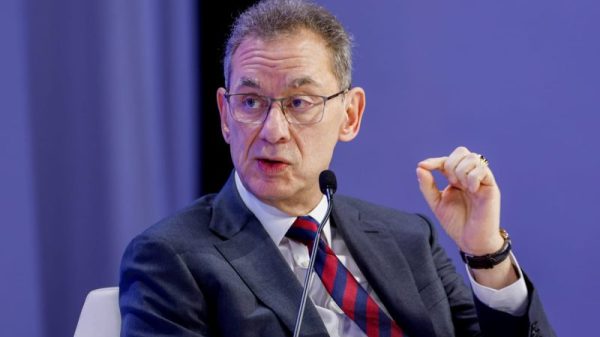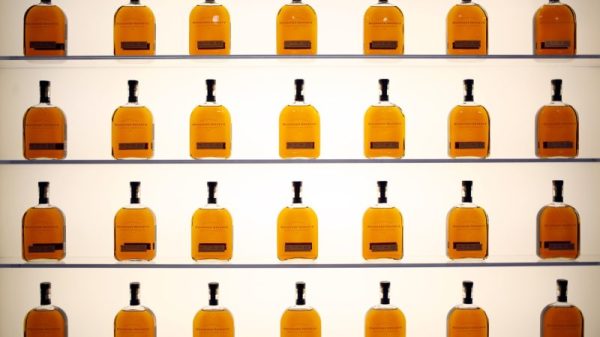By Dhara Ranasinghe and Stefano Rebaudo
LONDON (Reuters) – The European Central Bank looks set to cut rates again next week as inflation heads down, and financial markets are keen for a sense of whether a more challenging environment will spark speedier moves ahead.
Since the October meeting, a U.S. election win for Donald Trump has raised tariff risks for Europe; France and Germany are grappling with political turmoil; business activity has deteriorated and the euro has slumped.
“It makes no sense to be hawkish right now,” Pictet Wealth Management’s head of macroeconomic research Frederik Ducrozet said.
Here are five key questions for markets:
1/ Will the ECB cut rates by a quarter or half-point?
Traders reckon a 25 bps move is more likely. It would be the fourth reduction this year, enforcing the idea of back-to-back rate cuts.
A sharp slowdown in November business activity sparked talk of a big December move and the ECB’s Francois Villeroy de Galhau said the bank should keep its options open for a bigger cut.
Yet, most rate-setters appear to support a modest move, with inflation picking up last month and U.S. tariff policy still unclear. Other economic numbers meanwhile have been more positive: the latest ECB bank lending data showed record demand for housing loans.
“We expect 25 bps instead of 50 bps as the hawks are pointing to high core inflation and inflation rising again in November,” Carsten Brzeski, global head of macro for ING Research, said.
2/ What do Trump tariffs mean for ECB policy?
That is unclear. Tariffs are seen as negative for economic growth, but the impact on inflation is more uncertain. For now, focus is on the hit to growth.
Trump has vowed a 10% tariff on imports from all countries but details, and the response from U.S. trading partners, have yet to be seen.
ECB chief Christine Lagarde says a trade war at large would be a “net negative for all”, not just countries targeted by U.S. tariffs.
Goldman Sachs expects more limited tariffs on Europe, foreseeing a 0.5% hit to euro zone output.
“The negative GDP impact on the euro zone is likely to be somewhat more meaningful than the impact on inflation,” UBS chief European economist Reinhard Cluse said, adding that more easing could be likely if trade tensions escalate.
3/ Could the ECB speed up rate cuts?
Yes, especially if a sharper slowdown weighs on inflation.
Money markets price in roughly 155 bps of ECB cuts by end-2025, up from the 120 bps a month ago. That scale of easing would take the ECB’s key rate below the 2%-2.5% range economists view as neutral, neither stimulating nor restricting the economy.
“The euro area will need something more supporting than the neutral (rate),” Bruno Cavalier, chief economist at ODDO BHF, said.
4/ What is going on with inflation?
Well, consumer price inflation accelerated in November and the most closely watched components remained high, meaning ECB caution on rate cuts.
Inflation still appears headed towards its 2% target, with some signs that wage pressures are easing.
Societe Generale (OTC:SCGLY) said latest ECB growth and headline inflation forecasts, to be published on Thursday, are likely to be revised lower for next year.
The new forecasts could show inflation at target in the first half of the year, compared with end-2025 as the ECB projected in September.
5/ Could the ECB intervene to support French bonds?
No, for now.
France does not meet requirements for support under the Transmission Protection Instrument, allowing the ECB to buy the bonds of euro zone members experiencing an unwarranted selloff that tightens financial conditions.
French borrowing costs have fallen on rate cut speculation and other markets are stable.
Still, Lagarde may be pressed on France, which faces its second major political crisis in six months while the premium investors demand to hold French bonds over Germany has hit its highest since 2012.
“There is absolutely no case whatsoever for the ECB to intervene on France right now, if only because there is no contagion to others,” Pictet’s Ducrozet said.

































